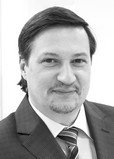Adaptation of foreign students to university education using differentiated approach to physical education
Фотографии:
ˑ:
Dr.Sc.Tech., Professor D.G. Arseniev1
I.L. Bondarchuk1
PhD, Associate Professor G.B. Dyachenko1
PhD, Associate Professor V.V. Krasnoshchekov1
1St. Petersburg Polytechnic University named after Peter the Great, St. Petersburg
Objective of the study was to increase the effectiveness of adaptation of foreign students to university education using a differentiated approach to physical education.
Methods and structure of the study. The study involved a total of 504 people, surveyed according to the method of objective evaluation of their current psychological state and personality characteristics - CMS (Current Mental State), as well as their functional fitness level (Ruffier test) to determine the degree of adaptation of foreign students to the new living conditions [3]. Sampled for the study were the students who had come from other countries to study at Peter the Great St. Petersburg Polytechnic University. Based on the level of their adaptation, we differentially selected the corresponding means of physical culture to correct negative states.
Study results and conclusions. The use of differentiated approach to the means of physical culture to adapt foreign students for training activity contributed to the improvement of their performance and adaptation rates. The number of foreign students tested with the low physical working capacity rates decreased from 227 people (45%) to 161 (32%), those with the average level increased from 232 people (46%) to 298 (60%), and those with the high level increased from 45 people (9%) to 55 (11%). At the same time, 29% of foreign students tested with the poor physical working capacity rates proceeding to the group with the average physical working capacity rates. The group of students with the good working capacity rates increased by 22%.
The differentiated approach to the use of means of physical culture to adapt foreign students for training activities enabled us to improve their adaptation rates on average by 15 and 11 points in the second and third groups, and also increase the average level of physical working capacity by 24.4% of the entire sample of foreign students.
Keywords: foreign students, adaptation, differentiated approach, objective personality characteristics rating method, physical education means, functional fitness, Ruffier test.
References
- Varzin S.A., Piskun O.E., Petrova N.N. Sravnitelnaya otsenka lichnostno-psikhicheskikh kharakteristik i psikhicheskogo sostoyaniya studentov mladshih kursov [Comparative Assessment of Personality-Mental Characteristics and Mental State of Undergraduates]. Teoriya i praktika fiz. Kultury, 2014. No. 7. pp. 20-22
- Bolotin A.E., Piskun O.E., Pogodin S.N. Osobennosti upravleniya sportivnoy rabotoy so studentami v vuzakh s uchetom ikh tsennostno¬motivatsionnoy orientatsii [Special features of sports management for university students with regard to their value¬motivational orientation]. Teoriya i praktika fiz. kultury. 2017. no. 3. pp. 51-53.
- Piskun O.E., Petrova N.N., Frolov B.S., Bondarchuk I.L. Metodika ob'ektivnoy otsenki tekushchego psikhologicheskogo sostoyaniya i svoystv lichnosti dlya opredeleniya urovnya adaptatsii inostrannykh studentov [Technique for objective assessment of current mental state and personality traits to determine adaptation level of foreign students]. Teoriya i praktika fiz. kultury. 2016. no. 6. pp. 15¬-17.
- Piskun O.E., Ababkova M.Y., Leontyeva V.L. Povyshenie effektivnosti uchebnogo protsessa v vuze na osnove metoda biologicheskoy obratnoy svyazi [Biological feedback method to facilitate academic progress]. Teoriya i praktika fiz. kultury. 2018. no.10. pp. 45¬47.
- Piskun O.E., Chistyakov V.A. Problemy psikhologicheskoy adaptatsii studentov mladshikh kursov tekhnicheskikh vuzov sredstvami fizicheskoy kultury [Some issues of junior technical university students' psychological adaptation via physical education]. Teoriya i praktika fiz. kultury. 2016. No. 11. pp. 38-39.
- Piskun O.E. Organizatsiya fizicheskogo vospitaniya studentov zarubezhnykh stran (Foreign university physical education procedure]. Teoriya i praktika fiz. kultury, 2014. No.7. pp. 6-8.
- Piskun O.E., Ababkova M.Yu., Leontyeva A.L., Kovaleva Yu.A. Pokazateli emotsionalnogo sostoyaniya studentov pri osvoenii teoreticheskogo kursa po distsipline «Fizicheskaya kultura» [Indicators of Emotional State in Physical Education Theory Course Students]. Teoriya i praktika fiz. Kultury, 2020. No. 1. pp. 53-58.
- Yasyukova L.A., Aleksankov A.M., Piskun O.E. Vliyanie zanyatiy fizicheskoy kulturoy na adaptirovannost studentov tehnicheskogo vuza [The Effect of Physical Education Classes on Adaptation of Technical University Students]. Teoriya i praktika fiz. kultury. 2015. No. 2. pp. 21-23.
- Bolotin A.E. (2015) Pedagogical model for developing the professional readiness of cadets studying at higher education institutions affiliated with the GPS of the MChS with the use of physical training aids, Journal of Physical Education and Sport, (JPES) 15(3), pp.417-425.
- Bolotin, A.E. and Bakayev V.V. (2016), “Efficacy of using isometric e xercises to prevent basketball injuries”, Journal of Physical Education and Sport, (JPES) 16(4), Art. 188, pp.1177-1185.
- Oberg K. Cultural Shock: Adjustment to new cultural environments // Practical Anthropology. 1960. 7. зз. 177-182.



 Журнал "THEORY AND PRACTICE
Журнал "THEORY AND PRACTICE